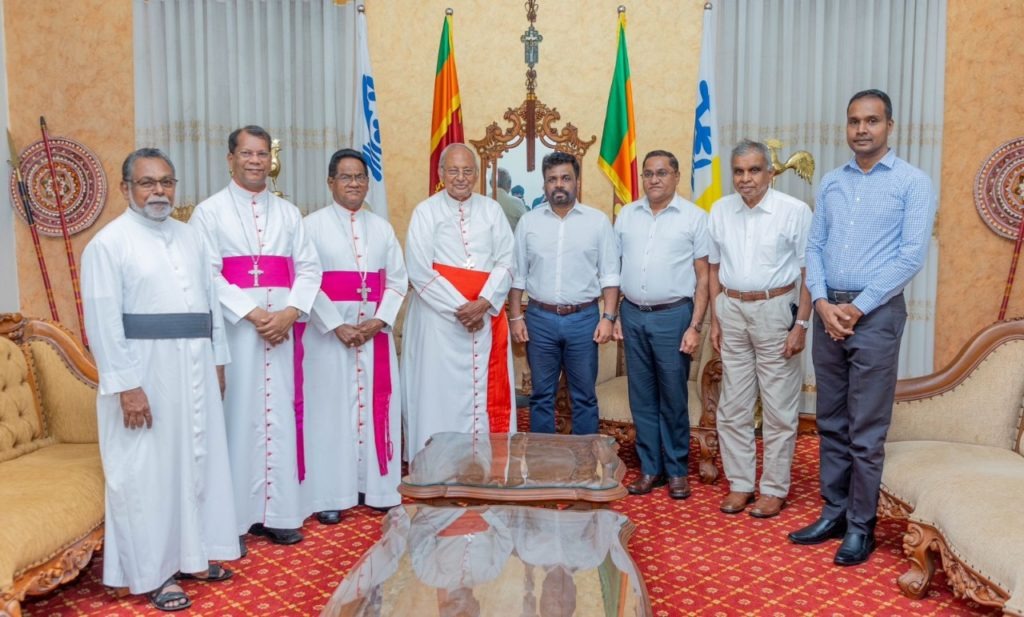Anura Kumara Dissanayake, the leader of Sri Lanka's Marxist-leaning National People’s Power (NPP) coalition and an outspoken atheist, recently met with Archbishop Malcolm Ranjith at the Archbishop’s official residence in Borella. This meeting, held on the afternoon of September 17, involved discussions about the current political landscape and the challenges facing the nation.
Accompanied by prominent Catholic leaders, including Assistant Bishops Maxwell Silva and D.J. Anthony, as well as Father Cyril Gamini, Dissanayake sought the Archbishop's blessings for his upcoming presidential election campaign. Despite his secular beliefs, Dissanayake’s actions reflect a deep respect for the diverse religious fabric of Sri Lanka.

During the meeting, Dissanayake assured the Cardinal of his commitment to providing adequate relief to the victims of the Easter Sunday bombings and promised to bring the perpetrators to justice. He emphasized a shared vision with the church leaders: the establishment of rule of law and justice in Sri Lanka, a message he believes can only be effectively pursued by a government led by the NPP.
The presence of Vijitha Herath, a National Executive Member of NPP, further underscored the coalition's focus on bridging gaps between politics and religion. As Dissanayake stated outside the Archbishop’s Palace, his engagement with the church reflects a broader commitment to fostering dialogue and cooperation among all Sri Lankans, regardless of their faith.
Dissanayake’s interactions with religious figures, despite his atheistic stance, signal an important message in today's political climate: the necessity of mutual respect and understanding among differing beliefs. As he prepares for the presidential election, voters are looking for leaders who can unify a country grappling with economic challenges and social strife, and Dissanayake is positioning himself as a candidate who values these principles.
His approach may resonate with a public yearning for leadership that acknowledges and respects the diverse perspectives that shape Sri Lanka's identity, especially as the nation seeks to recover from recent turmoil and move forward into a new era.